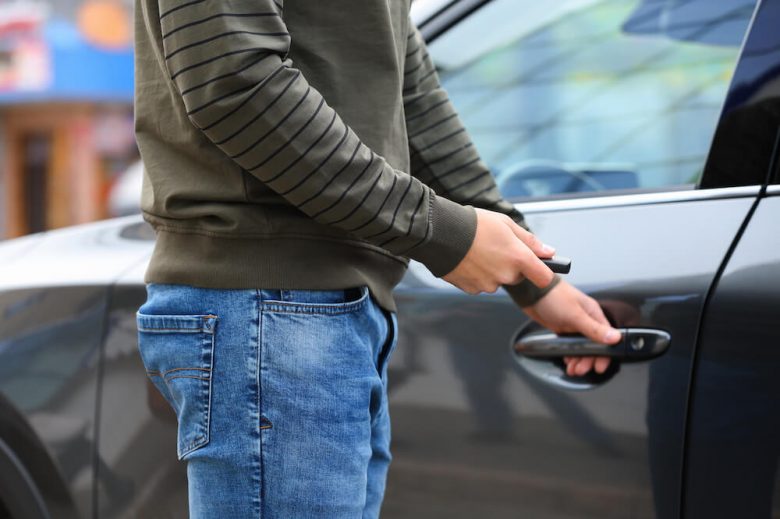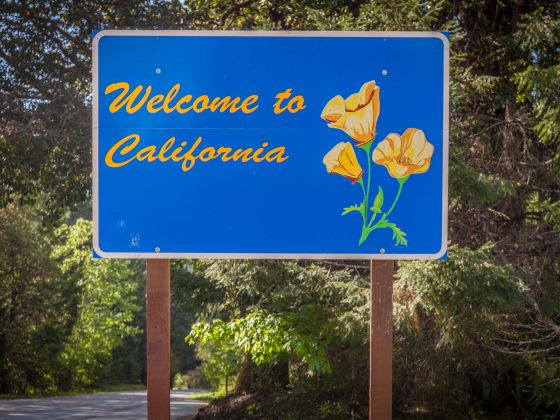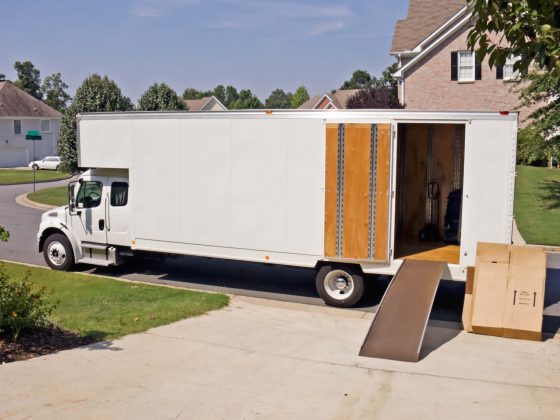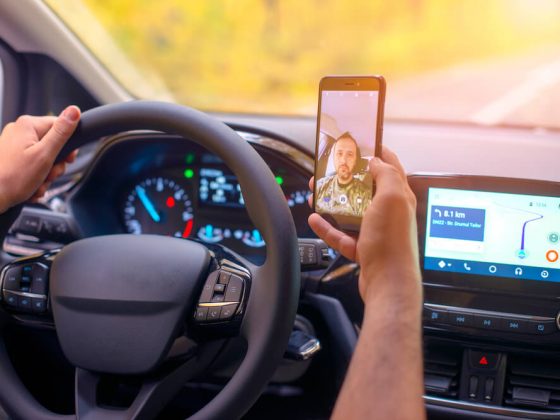Someone’s passing, whether family or friend, old age or all of sudden, is always difficult. But, alas, it’s a reality of life. For those left behind, there’s plenty to do after the grieving. Handling the deceased person’s affairs is one of those to-dos to check off the list. Depending on their estate and what’s left behind, the process can take a while.
Use eTags© to Quickly Complete Your DMV Service. Renewals, Title Transfers and More, All Online!

If you’re the surviving spouse of a deceased person in Ohio
In Ohio, there are four ways to handle the vehicle(s) someone’s left behind after their passing. If you’re the surviving spouse, you can transfer the car’s title which changes ownership and puts it in your name. Assuming the vehicle isn’t jointly owned; meaning your name doesn’t appear on the Ohio title.
While you get affairs in order, make sure to keep making regular car payments if there’s still a loan on the car and maintain updated registration/license plate
The Buckeye State lets you transfer as many vehicles as you want, valued up to $65,000. For instance if you have a used SUV and sedan, both worth $48,000, then you can transfer both titles. In addition to the $65,000 cap, you can transfer one boat and one outboard motor. If you choose to transfer the vehicle title in this way, please note that there may not be a designation as a transfer on death known as TOD, as a transfer with rights of survivorship (WROS) or a will involved.
SEE ALSO: COMPLETE GUIDE TO FIRST-TIME OHIO CAR REGISTRATION & LICENSE PLATE
Change of ownership requirements for surviving spouse in Ohio
You can transfer the title by going in-person to the County Clerk of Courts Title Office in Ohio, or process the paperwork online with a titling company like eTags. In any case, there are a few documents to change ownership.

• As the surviving spouse you need a copy of the death certificate (certified) as well as a completed Form BMV 3774. That’s the application for the Ohio car title in your name.
• You must also have an ID like an Ohio driver’s license and the original title for the vehicle(s).
• You must fill out Form 3773 which is the clerk of courts surviving spouse affidavit. Here’s where details like VIN, make/model, and value of car are listed.
If you transfer a car title as the surviving spouse, the change of ownership doesn’t affect any liens on the vehicle
If you choose to transfer the title online for change of ownership with eTags, you’ll be prompted to answer questions that’ll cover all of the above requirements. Plus, if you have any questions, a title specialist can communicate with you via your personal account.

Is the vehicle jointly owned with rights of survivorship
If two people have established joint ownership on a title for car, motorcycle, boat, or other vehicle with right of survivorship, and one of them passes away, the interest of the deceased passes to the survivor. This means the vehicle(s) in questions aren’t considered estate assets, so they won’t be included in the estates inventory.
Essentially, under transfer with WROS if one party is deceased, the living owner must apply for a title. That title will be issued with the survivor’s name and a designation “acquired by right of survivorship.” In this case, you must have the original title, certified death certificate, and ID.
If the deceased person’s car is jointly owned but without the WROS, the survivor must get the signature of the estate’s executor or administrator
The deceased wasn’t married or didn’t have a jointly-owned vehicle
If there’s no surviving spouse and no joint vehicle title, the car, pickup truck or other type of vehicle must go through probate court. Yes folks, judicial proceedings! You can’t change ownership or transfer title without the probate’s court order or the (estate’s) executor’s/administrator’s signature. The same requirements are needed, even with a last will and testament.
In title transfers with TOD, the beneficiary can also be organization corporation, trust, or other legal entity

Transfer on death (TOD) designation
If the deceased person designated you as a beneficiary on their Ohio car title with a signed and notarized form BMV 3811 (affidavit to designate beneficiaries) then you can apply for a title (form BMV 3774). You need the original Ohio title, the certified death certificate, and ID.
Hopefully, the information helps ease some of the complex matters you may be handling at the moment.









25 comments
My Mom passed 3 years I got junk car. It didn’t get put on the Probate court. Now I need to give the car to someone how do I do this? Do I need to go to the Probate court?With the title? Don’t know what to do.
We recommend seeking legal counsel or going through the probate process so that the courts can finalize who will be named the personal representative. Best of luck.
My ex husband’s lawyer apparently did not have me sign the correct papers upon our divorce to get my name off the car title. Ex passed last year and now lawyer wants me to sign off on the title but I believe the car should be mine. He never remarried. Supposedly he has a will. What can I do to get this car in my name?
Because an attorney is already involved, you must should legal counsel to assure that you are obtaining possession of the vehicle legally and without possibility of future reproach. Best of luck.
My father passed away and I cannot locate the title to do a survivorship in my mom’s name. Can I get a replacement title using his death certificate? I cannot find any answers online.
Hey there, sorry for your loss. You can go to ohio bmv in person to request title in your mom’s name. You’ll need probate paperwork and death certificate.
My mother passed and I can’t find her title for the car but I have her death certificate and tod can I still get her car in my name
If there’s no surviving spouse and no joint vehicle title, the vehicle must go through probate court to change ownership
My mom recently passed I am the executor of the will she has a clean title totally paid for can I transfer the title online with the proper paperwork as she was in Ohio and I live in Florida thank you
Yes eTags operates both in OH and FL. If you want to bring the vehicle into FL, all you need to do is an out of state title transfer. Should you wish to keep the car, you’ll also have to register it to get license plate and sticker. You can title and register online at the same time.
I was appointed executor of estate of my mom’s will plus I am named one of four beneficiaries in the will. As executor can. I put the car in my name only to sell so the proceeds can get distributed amongst the four beneficiaries ?
As executor you can do whatever you want as long as you have the right probate paperwork to support your chosen option and/or there’s a TOD (Transfer on demand) on file with BMV. The TOD is when the deceased went ahead of their death and named on the title who is supposed to get the car in their death. For a title transfer (put title in your name) with eTags online, you need to have death certificate, all probate paperwork and be willing to send in originals. We can mail everything back except probate letter.
My brother passed away and I was his caregiver. He had no will and I went through probate to settle his debts. Nothing was left but a vehicle that I gave to my/his father and he sold. I have a vehicle trailer with a plate but no title now. My father cannot sell the trailer without the title. How do I obtain them. The BMV referred me to a tittle record request form that does not give me an option to request the title with only his death certificate, plate number, and proof of probate settlement?
eTags would need to see the probate paperwork to see if we can help you with a title. You can reach out directly at support@etags.com
Sister passed away and left behind a car in OH. Nephew in FL left vehicle in my drive in OH and didn’t process the car thru probate court. Bottom line – stuck with an unregistered, unlicensed, uninsured car in my drive that I can’t even drive to get worked on after sitting for almost a year awaiting probate court proceedings. I am able to get my hands on the title, as my nephew has it, but can I somehow arrange to transfer this title to myself, so I can do something with it? I don’t want to scrap it (only 50k miles) and I am not “next of kin” as a brother and prior care taker, since she has a son. Any ideas would be greatly appreciated!
Not sure about the legalities of the court, for that you’ll need to get legal advice. But typically, your sister would have had to sign over the title to you then you’d be able to transfer title to yourself and register in OH.
How can a co owner of a car get,the deceased owner off of the title
You need to go through the probate process to prove valid will and ownership of vehicle. If you’re a surviving spouse, you can apply for a title transfer and registration in Ohio with eTags online.
I don’t have the title to deceased parents car in ohio. why do I have to go through full administration even if estate is under $5,000? my parent only had kids next to him as far as kin. You would think that the Bmv would cut us children some slack.
We paid for a car for my daughter and she was making payments to us. She recently passed away. How can we get the title changed to sell and pay off note. She lived in Ohio
Sorry for your loss. Contact the lien holder (where the loan is), they should be able to assist.
Father passed and car title not found. Title agency will not allow trustee of trust to get duplicate title and even with it, will not allow trustee to re-title in name of trust. If probate is required, what happens with the vehicle? Must it be stored? How to keep registration current (has already expired)? How to insure? Getting no help from DMV, Title Agency, etc. What do I do?
It sounds like the vehicle must be stored until probate is complete. Once you transfer the title to trustee, a new plate will need to be issued.
So I bought this car and never went and got the title transferred over to me and upon me never getting it transferred because I lost it the lady who own. Ed the car previous to me passed away from covid? How do I go about getting a title for it?
If you have a Bill of Sale, I’d recommend taking it to the BMV and explaining the situation. Alternatively, you can have her next of kin request a copy of the title and transfer it over to you.